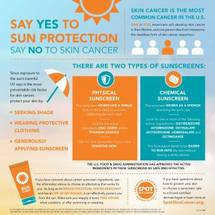Jury Still Out on Environmental Effects of Chemical Sunscreens

In the wake of Hawaiian legislation banning the sale and distribution of sunscreens containing oxybenzone and octinoxate because they may contribute to coral bleaching, new research reviews the available data on chemical ultraviolet filters found in U.S. sunscreens.
The findings, which appear in the Journal of the American Academy of Dermatology, do highlight environmental concerns related to sunscreen, but the authors maintain that more research is necessary and emphasize the importance of protection from UV exposure.
“While there is emerging evidence that chemical sunscreen ingredients could enter the water supply and affect marine life, including fish and coral reefs, more research will be necessary to draw any firm conclusions, and there have been no demonstrable harmful effects in humans,” says author Henry W. Lim, MD, FAAD, a board-certified dermatologist and chair emeritus of the dermatology department at Henry Ford Health System in Detroit, in a news release. “What we do know is that skin cancer is the most common cancer in the United States, and UV exposure is a major skin cancer risk factor. As such, everyone should still take steps to protect themselves from the sun’s harmful UV rays.”
Those who are concerned about the potential effects of chemical sunscreen ingredients on the environment can opt for a physical sunscreen containing the active ingredients zinc oxide or titanium dioxide, the authors state.
“All of the active ingredients in U.S. sunscreens have been approved by the U.S. Food and Drug Administration as safe and effective for human use,” says Boston-based dermatologist Suzanne M. Olbricht, MD, FAAD, president of the AAD. “Claims that any of these ingredients are toxic or a hazard to human health have not been proven. In fact, scientific evidence supports the benefits of applying sunscreen to minimize short- and long-term damage to the skin from the sun’s harmful UV rays.”

Facebook Comments